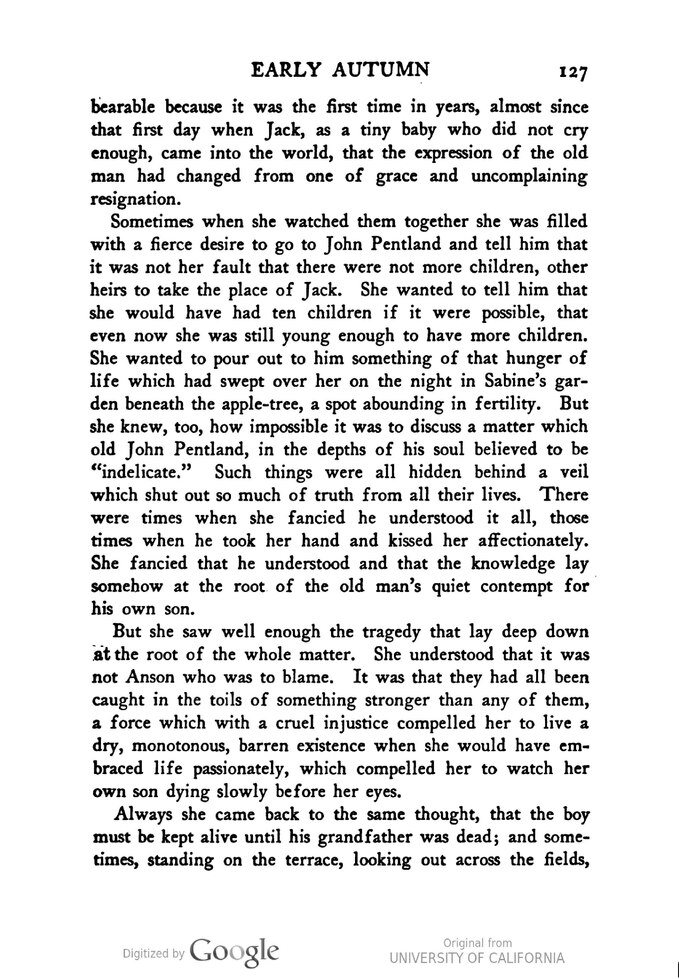bearable because it was the first time in years, almost since that first day when Jack, as a tiny baby who did not cry enough, came into the world, that the expression of the old man had changed from one of grave and uncomplaining resignation.
Sometimes when she watched them together she was filled with a fierce desire to go to John Pentland and tell him that it was not her fault that there were not more children, other heirs to take the place of Jack. She wanted to tell him that she would have had ten children if it were possible, that even now she was still young enough to have more children. She wanted to pour out to him something of that hunger of life which had swept over her on the night in Sabine's garden beneath the apple-tree, a spot abounding in fertility. But she knew, too, how impossible it was to discuss a matter which old John Pentland, in the depths of his soul believed to be "indelicate." Such things were all hidden behind a veil which shut out so much of truth from all their lives. There were times when she fancied he understood it all, those times when he took her hand and kissed her affectionately. She fancied that he understood and that the knowledge lay somehow at the root of the old man's quiet contempt for his own son.
But she saw well enough the tragedy that lay deep down at the root of the whole matter. She understood that it was not Anson who was to blame. It was that they had all been caught in the toils of something stronger than any of them, a force which with a cruel injustice compelled her to live a dry, monotonous, barren existence when she would have embraced life passionately, which compelled her to watch her own son dying slowly before her eyes.
Always she came back to the same thought, that the boy must be kept alive until his grandfather was dead; and sometimes, standing on the terrace, looking out across the fields,
